Many of us enjoy traveling to sunny destinations, getting to know interesting new cultures and having new experiences. Yes, Cuba is all that. However, there are things to know about Cuba before visiting this Caribbean nation. There are many Cuba hidden truths that we were shocked to find out about. We want to share with you what is real Cuba like. Cuba reality vs. expectations.
While Cuba captivates with its vibrant music, sun-drenched beaches, and rich cultural heritage, a closer look reveals the complexities and difficulties faced by its citizens facing the real Cuba daily issues. Beyond the tourist facade lies a reality often marked by economic hardships, limited freedoms, bureaucratic hurdles, and persistent social inequalities.
And before you start scoffing, yes, we agree Cuba is a gorgeous country! So many people visit one of the beach resorts and never choose to experience the real Cuba. We visited amazing places there, outside of the typical tourist traps and can say that it is a stunning country.
However, there is so much more Cuba hidden truths that lie just below the surface if you just look around, ask questions and pay attention. By understanding the issues in Cuba, we can actually help the people. And for us, supporting Cubans was key. Here are the things to know about Cuba before visiting
1.Money and Wages – Things to Know about Cuba before Visiting
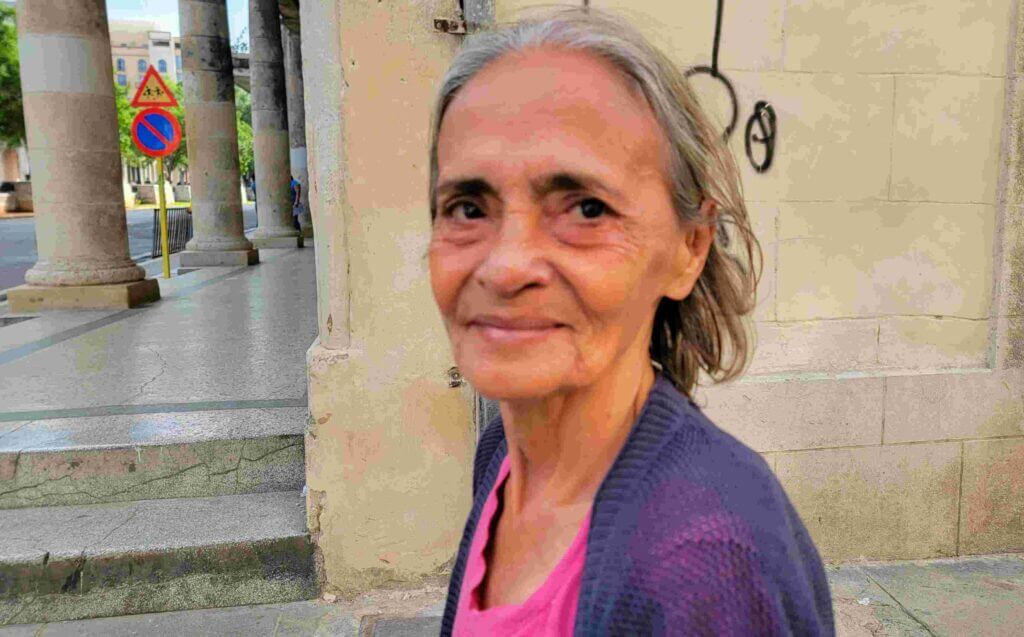
While Cuba offers undeniable cultural richness and vibrant experiences, it’s crucial to acknowledge the economic realities faced by its citizens. Tourists visiting the island may find the disparity between their own purchasing power and local wages stark.
Cuba reality vs. expectations: All of our drivers and guides during our visit were either doctors or lawyers. Their salaries were approximately 5,250 Cuban pesos per month ($20 USD). And this is a 3 fold increase since June 2023 when the wages were 1,400 – 1,600 pesos ($5-$6 USD/month).
It’s important to note that the Cuban government provides subsidized basic necessities like housing, healthcare, and education. However, the cost of essentials like food and medicine exceed the subsidized amount. Stores only have a few basic items and the costs are prohibitive with these wages. For instance a bottle of cooking oil sells for approximately $3 USD. In addition, the stores only sell a few items.
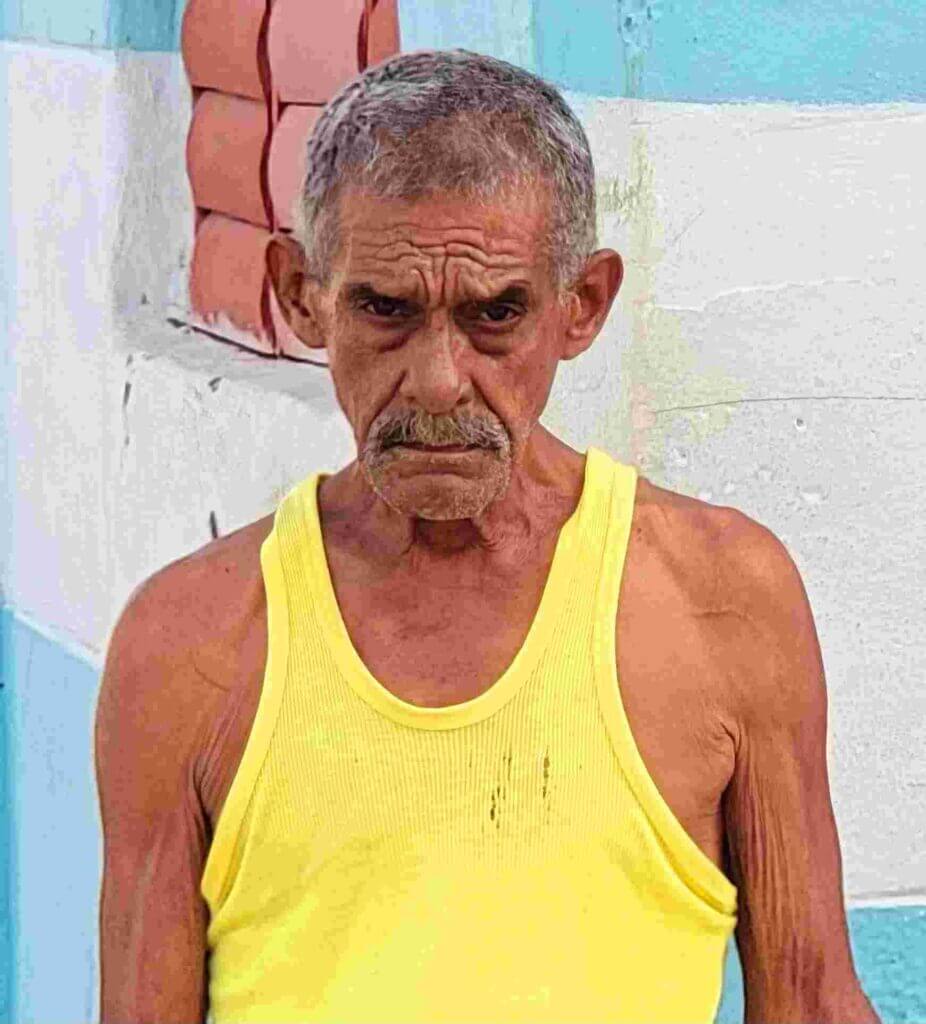
The government does provide ration cards that give family minimums for rice, sugar, matches, and oil. Limited bread is also supplied at subsidized prices. We passed by a number of such bread lines in Havana and smaller towns where the citizens wait at least 30 minutes if not an hour to receive their loaf of subsidized bread. The 2024 World Food Program report highlights ongoing food security concerns in Cuba, particularly impacting vulnerable populations.
Cuba hidden truths: Furthermore, the Cuban peso has experienced devaluation over time, impacting purchasing power. The government has set the exchange to be 120 CUP to $1 USD. However, on the black market, at time of writing the exchange was on average 260 CUP to $1 USD.
Cuba does have stores with a better selection for purchase, solely in USD. These are known as “MLC shops”, that sell imported items that can only be purchased with prepaid MLC cards. MLC stands for “Moneda Libremente Convertible” and is Cuba’s official digital currency, which trades at 1:1 with the USD. Cubans can use special hard currency debit cards to buy goods at specialized state stores. However, these are the Cubans who have access to foreign currency.
These economic challenges are attributed to multiple factors, including the end of Soviet aid, reduced Venezuelan oil subsidies, and the U.S. embargo. However, the impact on daily life for many Cubans remains significant.
Starving Senior Revolutionaries – Cuba Hidden Truths
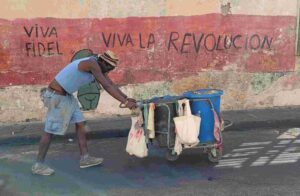
While having lunch in a local eatery in Cienfuegos, our driver and guide (both doctors) noticed an extremely gaunt elderly man passing by the restaurant. He looked incredibly frail and emaciated. Our guide said, ” You know this is the guy that fought for the revolution, and yet today he is starving”.
Immediately both our guide and driver jumped to their feet taking the majority of their food to the man. They both had tears in their eyes. This is what the revolution has done to these believers. And tragically this is the reality of the average Cuban.
2. Healthcare System Realities – Cuba Hidden Truths
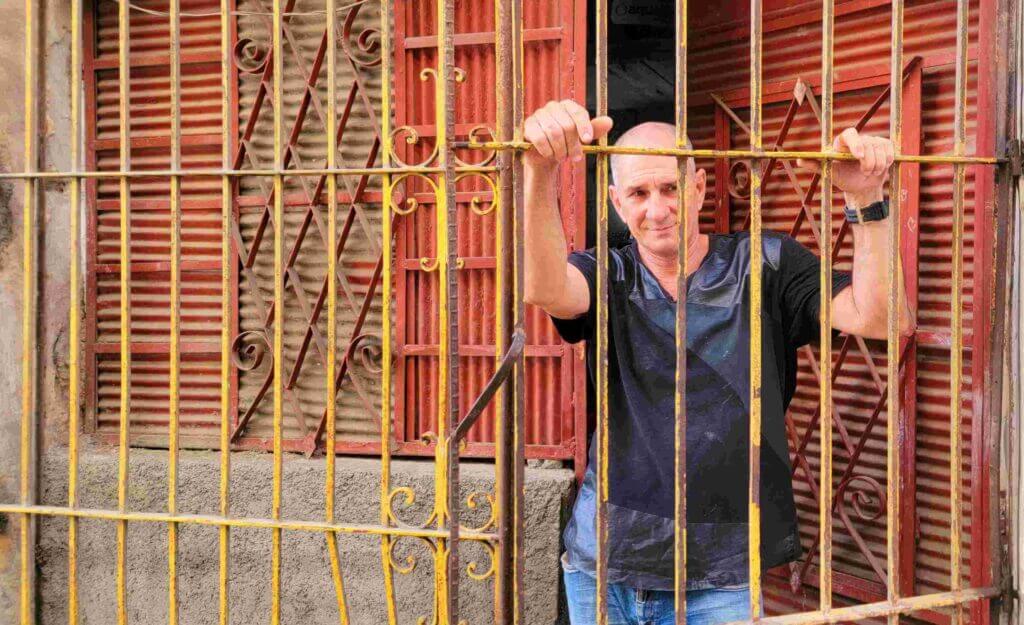
Cuba is proud of it’s universal healthcare system with significant achievements in areas like infant mortality and life expectancy. However, limitations exist due to resource constraints and logistical challenges. Grave shortages of medicines and medical supplies have been documented by organizations like the Pan American Health Organization (PAHO), particularly impacting medication and specialized care.
Although healthcare in Cuba is free, it doesn’t provide much. Visiting many local pharmacies it was clear that generally the cupboards are bare. And if something becomes available, huge lines form in front of that particular pharmacy. Talking to pensioners, the situation that they describe is dire.
Bottom line, the only way for them to receive the lifesaving drugs that they need is through relatives abroad or if they buy it on the black market with USD. These are the Cuba hidden truths that most don’t know.
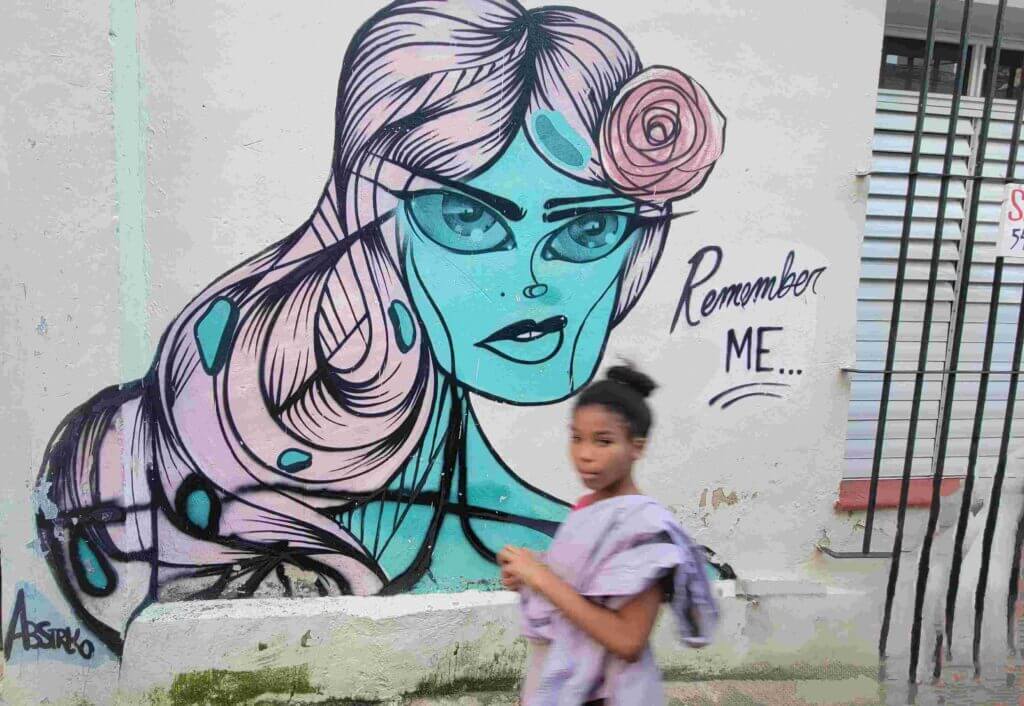
Moreover, if one does get into an accident there may not be a working ambulance to pick you up. And if there are multiple casualties, the ambulance attendant will have to choose who to take to the hospital and who to leave behind. Furthermore, if and when you do get to the hospital, there will not be any supplies to patch you up.
In essence, if a person needs a planned operation, their family must gather everything from surgical gloves, anesthesia, saline solution, to needles, etc., These doctors who were driving us around would tell us of the countless times that they cried, losing a patient yet again due to a lack of resources.
Given these incredibly limited resources, Cubans have been turning to natural remedies in the face of a shortage of prescription drugs. Cuba has a long history of using herbal remedies and alternative treatments. Some Cubans grow their own medicinal herbs in the countryside or on small urban plots.
3. Education – Cuba reality vs expectations
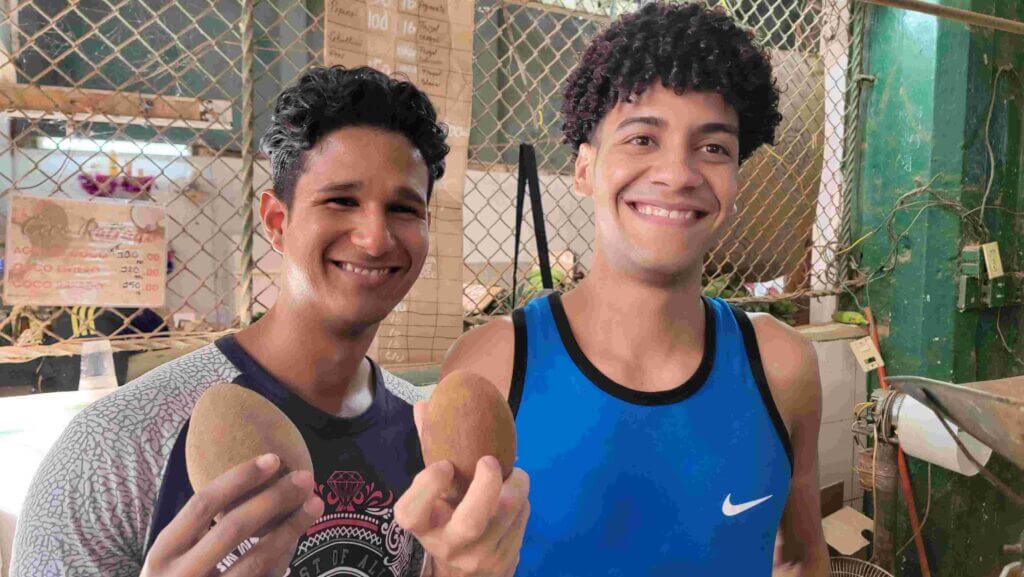
Cuba’s education system boasts several achievements, including mandatory schooling through grade nine and free university education. This has contributed to the island’s high literacy rate, recognized as the 21st highest in the world. However, it’s important to acknowledge the complexities and nuances surrounding this system.
While free education offers undeniable benefits, concerns regarding ideological indoctrination and limitations on individual freedoms deserve mention. Our sources in Cuba were very clear, they did not want the state to influence their children’s education from a communist authoritarian perspective. They did not want their children to have to endure what they did….
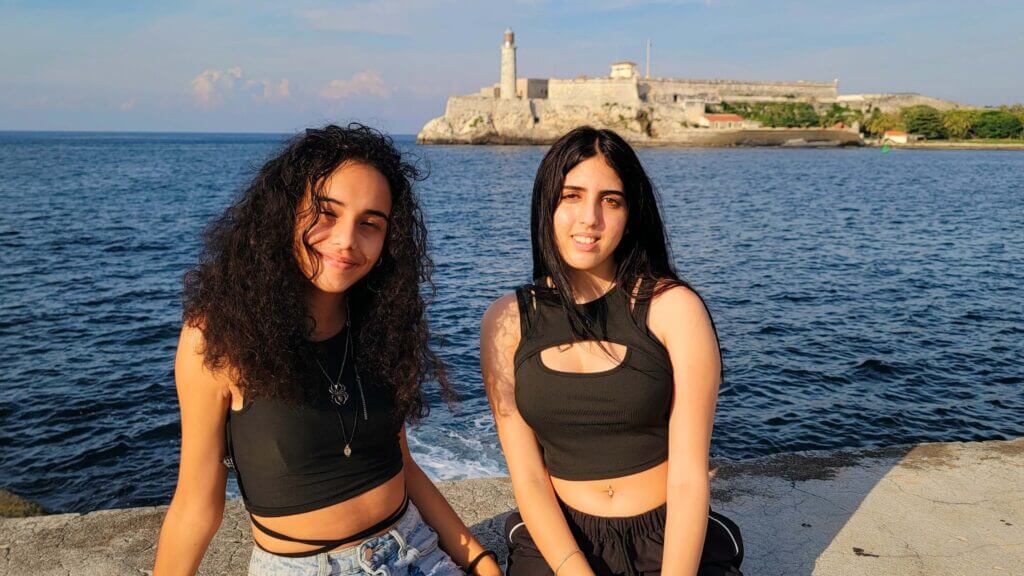
The restriction on travel for doctors who specialize beyond family medicine presents another important aspect to consider. This policy, documented by Human Rights Watch and other organizations, raises questions about individual freedoms and career choices. It’s crucial to acknowledge these limitations while recognizing the ongoing efforts to improve the education system and address such concerns.
So what is this policy? Well, if a doctor specializes further in medicine beyond the family practitioner level, then their passport is taken away by the government. And with it, any hope of travel or the dream to potentially escape. Every single doctor that we interacted with refused a specialization because of this practice.
However, the Cuban regime has a steady revenue stream from exporting their doctors on their own terms. These 34,000–50,000 Cuban medical workers endure abusive conditions in more than 60 countries. According to the Cuban government, it makes an estimated $7 billion USD annually by exporting professional services, including these medical missions. This is not assistance — it is a for-profit activity of the Cuban regime. It’s the regime’s top revenue source as they keep up to 90% of these doctor’s earnings.
4. Fuel Crisis for Cubans
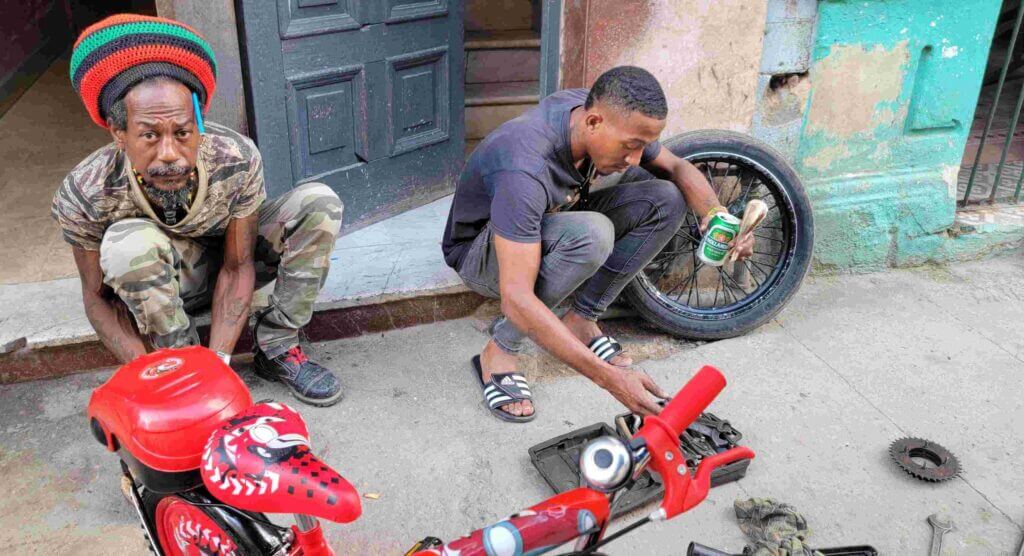
Since mid-April 2023, Cuba has grappled with a severe fuel crisis, impacting various aspects of daily life and exacerbating existing economic challenges. The crisis has resulted in extensive queues at gas stations, often stretching for miles and causing wait times of days to fill vehicles. This significantly disrupts transportation, both public and private, with rural communities particularly affected.
Lack of fuel forces some residents to revert to traditional methods like coal fires for cooking, highlighting the crisis’s reach beyond urban areas. In addition, this fuel crisis has negatively impacted families that are located in different parts of the country. It was difficult before the fuel crisis due to cost. However, at this point seeing each other has become prohibitive.
Overall, power outages have become more frequent and prolonged due to these fuel shortages, leading to restrictions on power usage at state-run companies. Additionally, local authorities have been forced to postpone sporting events and university classes to further conserve energy.
Cuba hidden truths: Our doctor/drivers had to spend the nights, while we slept, in gasoline lines, sourcing fuel for the next day.
5. Cuban Migration Crisis
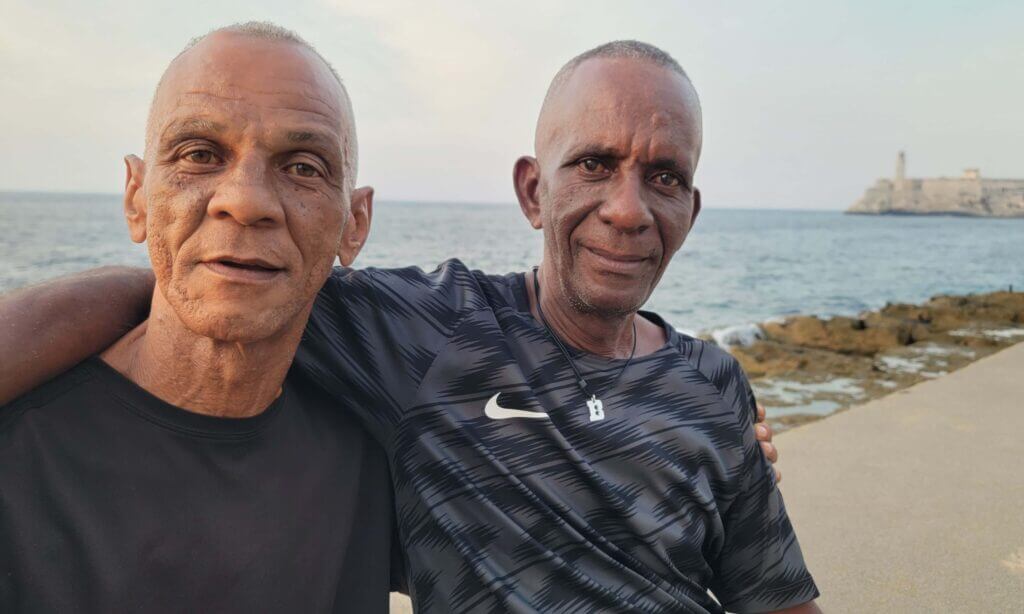
Some of the things to know before visiting is that thousands of Cubans are leaving their homeland in search of a better life. They are creating a complex phenomenon known as the “2021-2023 Cuban migration crisis.” In fact nearly half a million Cubans have left Cuba in 2023. This is the official number, however our local sources mentioned 2 million Cubans who have left the island in the last 3 years (overall population of Cuba is 11 million).
While this exodus offers certain glimmers of hope, it also presents significant challenges for the island nation and its citizens. On the positive side, remittances sent by Cubans abroad provide a crucial lifeline for those back home. Over $3 billion annually flows into the Cuban economy, easing shortages and allowing families to afford basic necessities like food and medicine.
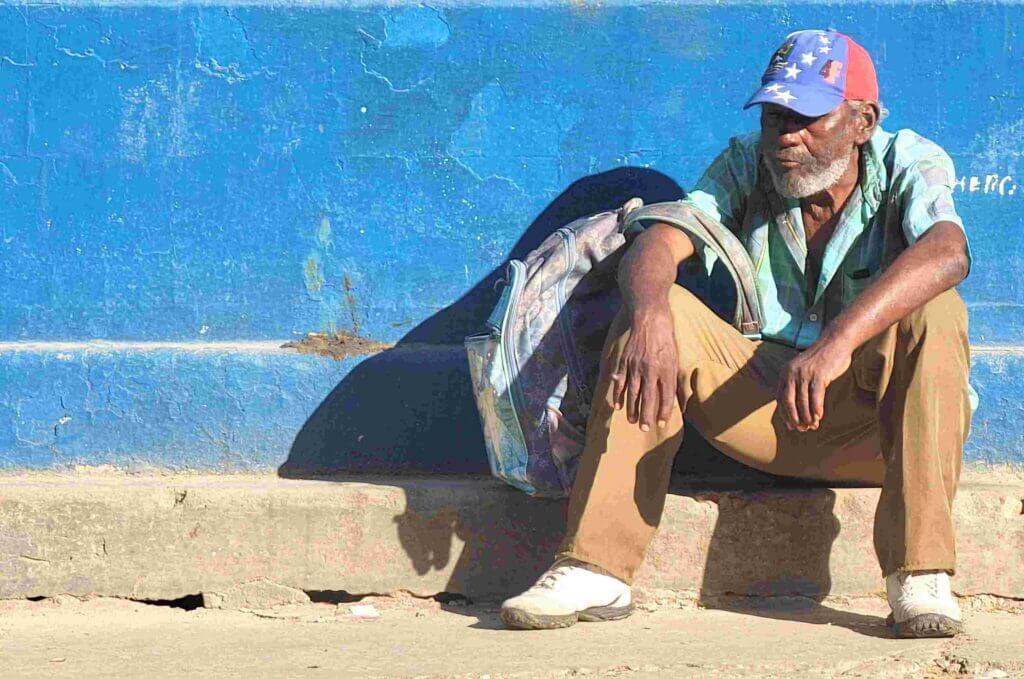
However, the downside cannot be ignored. The mass exodus creates labor shortages, particularly in healthcare, education, and agriculture, hindering economic growth and straining essential services. Families being torn apart causes emotional distress and social challenges, while communities lose their younger, ambitious individuals, potentially leading to demographic imbalance and diminishing social vibrancy.
In fact one of our main guides, was planning his own exodus. His planned flight was scheduled to leave the island on the same day as ours. Although, he was leaving to one of the very few places Cubans are allowed to go visa free – Nicaragua.
His plan was to take his wife and 2 children on a “trip” to Nicaragua and then make his getaway to El Salvador to establish himself and his family there. He said with tears in his eyes, “you know, I may never see my mother again….how do I provide a better life for my children without losing my family?”.
Moving forward, acknowledging the complex mix of motivations and consequences is crucial. While remittances offer temporary relief, long-term solutions to economic hardships and political uncertainties are essential to stem the exodus and build a sustainable future for both those who leave and those who remain.
6. Freedom of Expression – Cuba hidden truths

According to Freedom House, Cuba’s constitution prohibits privately owned media and restricts speech that doesn’t “conform to the aims of a socialist society”. The government closely monitors online users who post or access political information, and punishes those it considers dissidents. The 1992 Cuban constitution allowed free speech “in keeping with the objectives of socialist society”. However, the 2019 Cuban constitution removed this language.
Our guides were very careful about what they said, when others could overhear them. In addition, they spoke in English limiting who could denounce them or worse yet report on them to the authorities. According to Human Rights Watch, the government controls all media outlets in Cuba and restricts access to outside information. A 2019 Committee to Protect Journalists report says Cuba has the “most restricted climate for the press in the Americas”.
According to Amnesty International, Cuba has a history of restricting freedom of expression and peaceful assembly. In fact there are thousands of innocent people surviving in inhumane conditions in Cuban prisons just for peacefully protesting.
The good news is that same-sex marriage became legal in Cuba in 2022. However, freedom of expression has to improve here and soon.
Responsible Travel Tips to Support the Real Cuba and it’s People
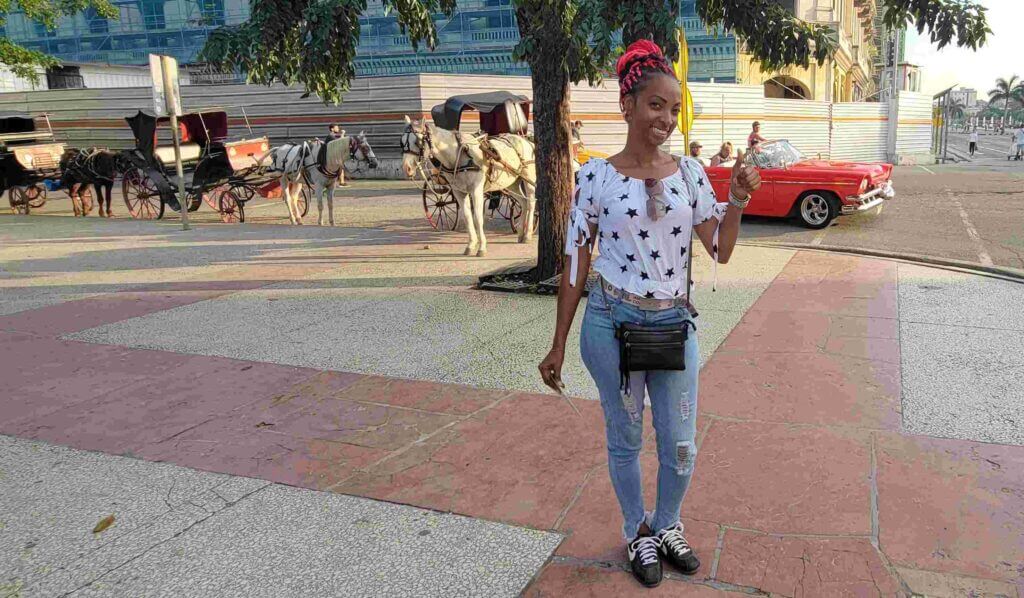
While Cuban culture and beauty enthrall many tourists, responsible travel necessitates engagement beyond the surface. Here are some ways to directly support Cubans during your visit:
Accommodation:
- Choose “casa particulares”: Skip hotel chains and opt for “casa particulares,” family-owned guesthouses, for direct local support, personalized service, and authentic experiences.
- Avoid large resorts: These often bypass local economies and offer limited contact with everyday life.
Dining:
- Patronize “paladares”: These private restaurants showcase Cuban cuisine and provide income directly to families.
- Skip state-run restaurants: While offering a glimpse into the state-controlled sector, prioritize supporting independent businesses.
Financial Support:
- Tip generously: Remember, Cuban salaries are very low. Consider tipping in USD for significant impact.
- Refrain from bartering: While tempting, avoid negotiating prices with locals who already earn significantly less than you.
Gifts:
- Bring essential items: Medications, feminine hygiene products, toiletries and veterinary supplies which are highly appreciated and difficult to access in Cuba.
- Be respectful and avoid unwanted donations: Consult reputable sources to identify truly needed items and avoid culturally insensitive gifts. See below for reputable charitable organizations and NGOs to donate to.
Additional Tips:
- Engage with locals: Show genuine interest in their lives and perspectives.
- Learn basic Spanish: Communication fosters positive interactions and cultural understanding.
- Minimize environmental impact: Be mindful of your waste and support sustainable practices.
- Promote responsible tourism: Share best practices with other travelers and advocate for ethical tourism initiatives.
Remember, responsible travel extends beyond financial transactions. Respectful interaction, cultural sensitivity, and mindful choices create a positive impact on Cuban communities and contribute to a sustainable tourism industry.
Donations – Supporting Cubans and Real Cuba
If you are thinking about making a donation, consider these charities:
- Catholic Relief Services (CRS) is a nonprofit organization that donates food and hygiene products to Cuba.
- Friends of Caritas Cuba works with the most vulnerable groups of people on the island providing humanitarian assistance to elderly, children and people with disabilities.
- Misión Emaús Cuba provides monthly meals to people on the island.
- Puente de Amistad supports social programs for children, youth and families. The organization also supplies medicine and hygiene products.
- Wild Horse Children’s Foundation supplies children with food and medicine.
Wrap Up- Things to know about Cuba before visiting
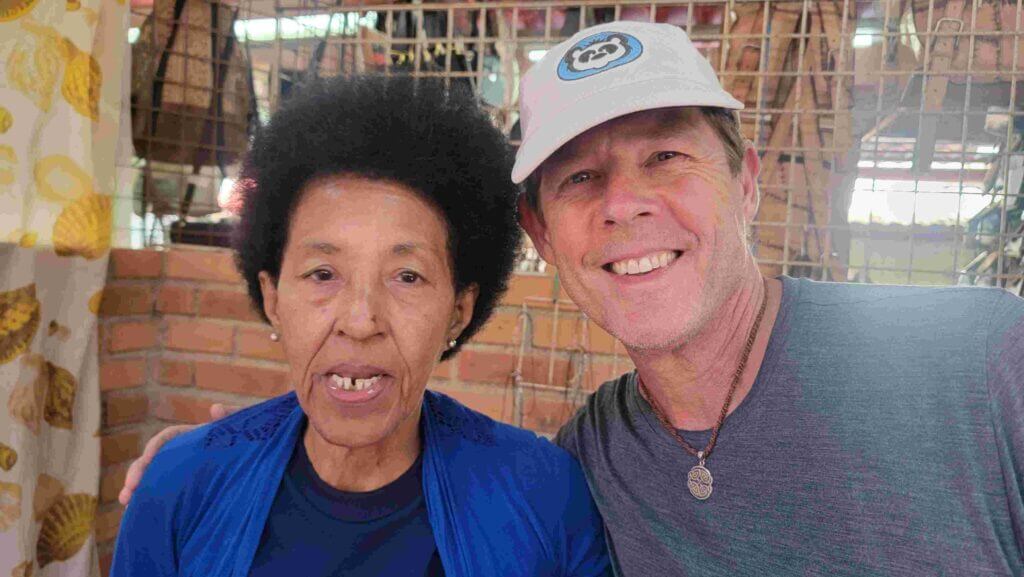
Cuba’s vibrant culture, stunning landscapes, and rich history undoubtedly attract tourists worldwide. However, responsible travel necessitates acknowledging the complexities beyond the postcard-perfect image. Therefore we created this post of things to know about Cuba before visiting to help you understand the Cuba reality vs expectations.
In addition, we wanted to uncover some of the Cuba hidden truths, so you come prepared and understand what is real Cuba like. All of this in case you do want to help the people of real Cuba and make some choices in advance that will benefit them. Perhaps you want to bring some donations or make a choice to stay in a casa particulares instead of a hotel chain where the profits go to the west and not the people of
Cuba.
While celebrating Cuba’s beauty and cultural richness, it’s crucial to engage with the realities faced by its citizens. This entails moving beyond superficial observations and delving into the day-to-day lives of ordinary Cubans. By doing so, we gain a more nuanced understanding of the challenges and triumphs that shape their experiences.
Hopefully some of these Cuba hidden truths have given you a better perspective of the day to day lives regular Cubans face. Traveling to Cuba responsibly is one of the ways to help Cubans.
Have you been to this gorgeous island nation and witnessed the Cuba reality vs expectations? Did we miss anything? Perhaps there is a charity or NGO that we did not list that you had a good connection with. Please do share your experiences with us in the comments section below.

